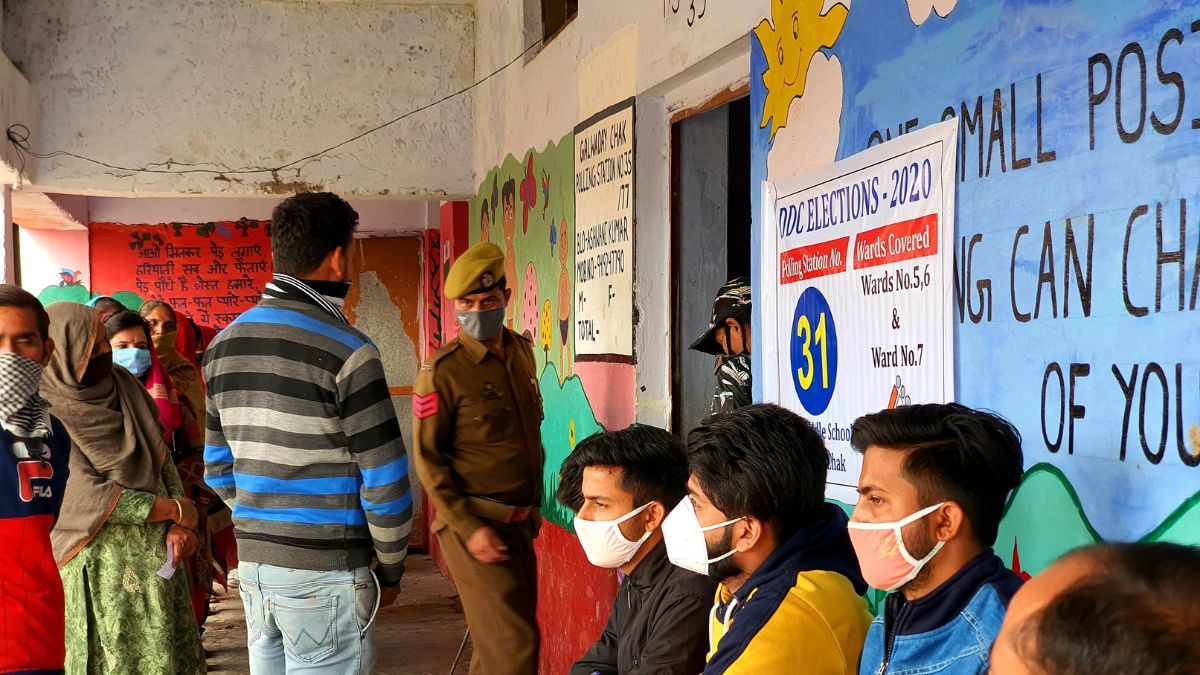Last Updated: August 05, 2023, 14:24 IST
The amendment to the J&K Panchayati Raj Act in October 2020 enabled the creation of District Development Councils, the final tier of the system. (Shutterstock)
In October 2019, elections for Block Development Councils were held for the very first time in the history of J&K, with a historic turnout of 98.3 per cent. With these block panchayats constituted and now operational, the foundations for grassroots governance have been firmly established
“For the first time after the removal of Article 370 and 35 from Kashmir, democracy has reached to the grassroots level,” Union Home Minister Amit Shah said in March this year as he hailed the Narendra Modi government’s efforts to bring about a transformative change in local governance in the erstwhile state.
Four years since the abrogation of Article 370, J&K has seen the roots of democracy deepen over time with the establishment of a three-tier Panchayati Raj system.
The amendment to the J&K Panchayati Raj Act in October 2020 enabled the creation of District Development Councils, the final tier of the system. Elections were promptly held for these councils, along with by-elections for ‘panches’ and ‘sarpanches’, resulting in 35,000 elected representatives. These grassroots leaders now have the power to shape the future of their villages, tehsils, and districts.
In October 2019, elections for Block Development Councils were held for the very first time in the history of J&K, with a historic turnout of 98.3 per cent. With these block panchayats constituted and now operational, the foundations for grassroots governance have been firmly established.
Hailing the change in the erstwhile state, Shah had said: “Kashmir (Jammu & Kashmir) used to have 90 MLAs and six members of Parliament. Today, there are more than 30,000 panches, sarpanches (village level representatives) as well as members of tehsil and district panchayats representing people.”
Last month, the Union government, which filed a fresh affidavit in the Supreme Court just a day before it was set to hear a batch of 23 petitions challenging the reading down of Article 370, defended its decision by saying the move “brought unprecedented development, progress, security, and stability to the region, which was often missing during the old Article 370 regime”.
The affidavit noted that schools, colleges, universities and other public institutions have been functioning without any disturbances or strikes since the dilution of Article 370. “The earlier practice of daily hartals, strikes, stone pelting and bandhs are a thing of the past now,” the Centre’s affidavit said, as per Live Law.
Stating that efforts have been made towards “strengthening democracy at the grassroots level, the Centre said that for the first time in history, an elected three-tier Panchayati Raj System has been established in Jammu and Kashmir. In November-December 2020 elections for the members of the District Development Councils were held, the affidavit highlighted.
The Modi government’s move in 2019 stripped Jammu and Kashmir’s statehood, scrapped its separate Constitution and removed inherited protections on land and jobs. The unprecedented move divided the region into two federal territories — Ladakh and Jammu-Kashmir, both ruled directly by the central government without a legislature of their own.
A domicile law rolled out in 2020 made it possible for any Indian national who has lived in the region for at least 15 years or has studied for seven years to become a permanent resident of the region. That same year, the government also eased rules for Indian soldiers to acquire land in Kashmir and build “strategic” settlements.


